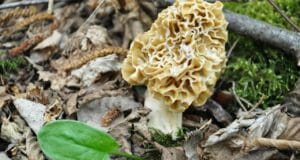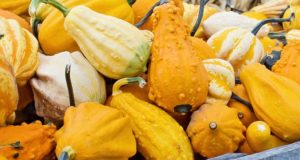
Image source: SheKnows.com
For devotees of organic food, it doesn’t take a lot of convincing when you say that organic food is better for you.
After all, it certainly seems reasonable to say that not eating toxic pesticides is better for you than, well … eating toxic pesticides. And it certainly seems to be a better option for the environment as well as an answer to preventing the development of “super pests”.
But is it possible that organic foods may be better for you even without the toxin factor? According to a new study conducted by researchers at Newcastle University and published in the British Journal of Nutrition, the answer is a resounding yes!
The study was a meta-analysis – meaning that the researchers reviewed statistics from hundreds (342) of studies which compared organically grown fruits, vegetables and grains with their conventionally grown counterparts.
According to lead researcher Carlo Leifert, “If you buy organic fruits and vegetables, you can be sure you have, on average, a higher amount of antioxidants at the same calorie level.”
What the Study Found
More Antioxidants
Researchers at Newcastle found that organic food contained “substantially higher” concentrations of antioxidants. Overall, the organic group of foods contained 17 percent more antioxidants than conventionally grown food. And in the case of a group of compounds called flavanones, the concentration was as much as 69 percent higher.
New Survival Seed Bank™ Lets You Plant A Full Acre Crisis Garden!
Fewer Toxins
As you might expect, the study also found huge differences in the amounts of pesticide residue. In fact, levels were four times higher in conventional food than they were in organic. Of particular note is the fact that conventionally grown food had a 48 percent higher concentration of the toxic metal cadmium (which is present in cigarette smoke and can cause kidney and liver damage at certain levels). And while the conventional food was still well within government “safe” limits in terms of pesticides, it’s good to remember that tobacco, aspartame and most recently artificial trans-fats (partially hydrogenated oils) had all been considered safe for years.
Why it Matters
Although the study did not go as far as to say that eating organic foods will make you healthier (there are laws against such claims you know!) an understanding of how antioxidants work in the body can lead readers to make their own conclusions.
Simply put, antioxidants help to protect the body against free radicals.
Story continues below video
The concept of free radicals was first discovered by gerontologist Denham Harman in 1954. Free radicals are molecules which are missing one or more electrons and because of this, they attack other molecules (such as those in your cells) to replace their own missing electrons. The process is called oxidization and it is one of the key factors in aging. The way that an apple slice starts to “rust” after being left out for an hour is an easily observable example of this oxidization.
But worse than causing aging, free radicals have been linked to more than 60 different diseases including cancer, Parkinson’s, and Alzheimer’s.

Image source: etravelmaine.com
Antioxidants, on the other hand, are “electron donors.” They can give up their own electrons to free radicals without themselves becoming free radicals, thereby defending your body against the oxidization process.
Other benefits of certain antioxidants include repairing and protecting DNA molecules, assisting with the elimination of toxic metals and improving the immune system.
While there are many compounds which can act as antioxidants, some of the most familiar include vitamin C, vitamin E and beta-carotene.
The Rebuttals
Naturally, not everyone was impressed with the findings of the Newcastle study. According to Tom Sanders, a professor at King’s College London, “You are not going to be better nourished if you eat organic food. What is more important is what you eat, not whether it’s organic or not.”
There have also been a number of studies conducted over the last few decades which have been inconclusive in linking antioxidants to disease prevention. It should be noted, however, that most of these studies are done using supplements and not actual food, as noted by the Harvard School of Public Health.
The school’s own website states that “abundant evidence suggests that eating whole fruits, vegetables and whole grains – all rich in networks of antioxidants and their helper molecules – provides protection against many of these scourges of aging.”
Conclusion
The results of the Newcastle study clearly indicate that organic fruits, vegetables and grains are higher in antioxidants and lower in toxins than their conventionally grown counterparts.
Does this translate to better health? Coming to your own conclusion seems to be fairly simple in this matter.
Do you believe organic food is healthier? Tell us in the comments section below.
Sign up for Off The Grid News’ weekly email and get $600 worth of survival blueprints … free!
 Off The Grid News Better Ideas For Off The Grid Living
Off The Grid News Better Ideas For Off The Grid Living




